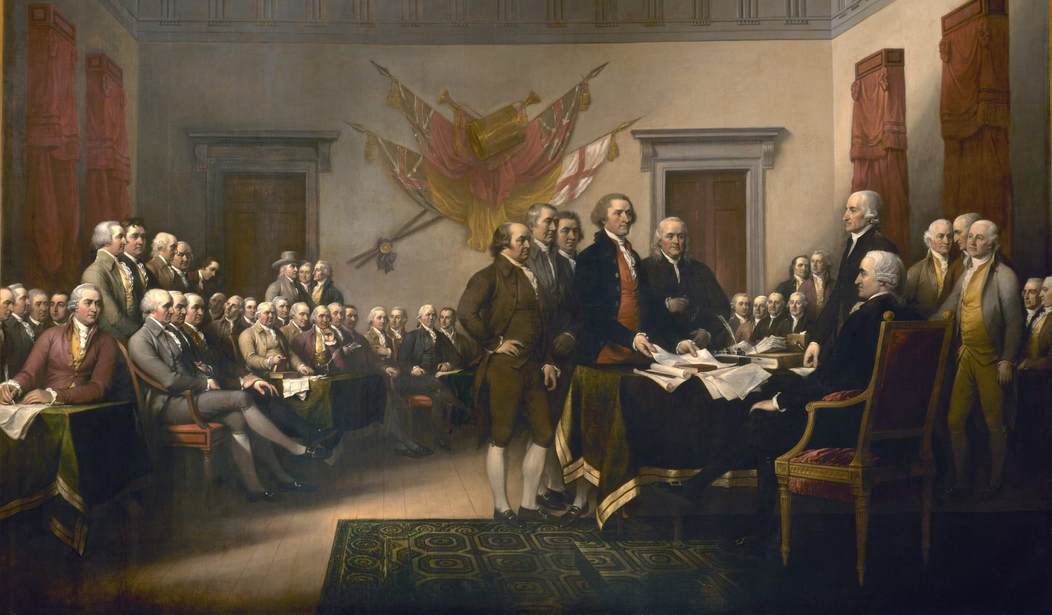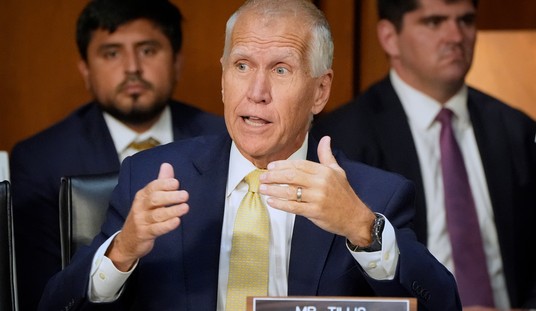The Declaration of Independence was censored on Facebook this week. According to Facebook’s algorithm, America’s founding document contains “hate speech.”
Leading up to Independence Day, a newspaper in Texas posted sections of the Declaration of Independence on Facebook. The social media site’s algorithm blocked a section of America’s founding document, categorizing it as “hate speech.” I’m glad to say Facebook later realized its mistake, apologized, and unblocked the post, but this incident reveals the problems with automated “hate speech” algorithms.
The Vindicator started posting snippets of the Declaration on June 24, enabling readers to digest the whole thing in time for July 4. The first nine parts posted just fine, but part 10 — paragraphs 27-31 of the founding document — did not appear.
“Instead, The Vindicator received a notice from Facebook saying that the post ‘goes against our standards on hate speech,'” Casey Stinnett, the paper’s managing editor, reported on Monday.
The offending passage was part of the “long train of abuses” the signers of the Declaration accused King George III of committing against America. Here it is in full:
He has abdicated Government here, by declaring us out of his Protection and waging War against us.
He has plundered our seas, ravaged our coasts, burnt our towns, and destroyed the lives of our people.
He is at this time transporting large Armies of foreign Mercenaries to compleat the works of death, desolation, and tyranny, already begun with circumstances of Cruelty & Perfidy scarcely paralleled in the most barbarous ages, and totally unworthy the Head of a civilized nation.
He has constrained our fellow Citizens taken Captive on the high Seas to bear Arms against their Country, to become the executioners of their friends and Brethren, or to fall themselves by their Hands.
He has excited domestic insurrections amongst us, and has endeavoured to bring on the inhabitants of our frontiers, the merciless Indian Savages whose known rule of warfare, is an undistinguished destruction of all ages, sexes and conditions.
Stinnett suggested — and he is almost certainly right — that Facebook’s algorithm responded to the phrase “merciless Indian Savages.”
The Vindicator‘s managing editor proved to be an extremely good sport. He noted that the post’s removal was automated, and gave Facebook the benefit of the doubt that “if any human being working at Facebook were to review it, no doubt the post would be allowed.”
Stinnett also noted that “Facebook is a business corporation, not the government, and as such it is allowed to restrict the use of its services as long as those restrictions do not violate any laws.” He also admitted, “The Vindicator is using Facebook for free, so the newspaper has little grounds for complaint other than the silliness of it.”
“It is a very great irony that the words of Thomas Jefferson should now be censored in America,” the editor concluded.
However, on Tuesday evening, Facebook relented and restored the post.
“It looks like we made a mistake and removed something you posted on Facebook that didn’t go against our Community Standards,” Facebook told The Vindicator in a statement. “We want to apologize and let you know that we’ve restored your content and removed any blocks on your account related to this incorrect action.”
Stinnett once again proved an excellent sport. “The Vindicator extends its thanks to Facebook. We never doubted Facebook would fix it, but neither did we doubt the usefulness of our fussing about it a little.”
While the incident is thankfully over, this censorship of Thomas Jefferson reveals the tremendous weakness of automatic “hate speech” algorithms. Facebook is in a lose-lose situation here: either they set up an automatic algorithm to remove likely “hate speech” immediately — with absurd consequences, or they employ workers to monitor billions of posts to find “hate speech” on an individual basis.
I wouldn’t defend anyone today referring to the descendants of Native Americans as “merciless Indian Savages,” but that’s not what’s going on here, and any human Facebook employee would be able to grasp that immediately. Unfortunately, the program restricts speech automatically, forcing The Vindicator to file a complaint.
Facebook is within its rights to restrict speech — frustrating as it is — but the company should not give an algorithm the benefit of the doubt. The site almost censored the Declaration of Independence on Independence Day.









Join the conversation as a VIP Member